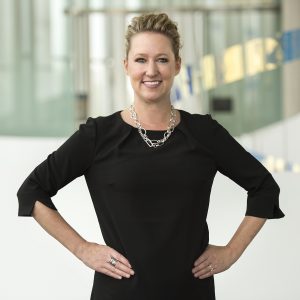by Kathy Rumpza
Minneapolis College
Minneapolis, MN
 Minneapolis is the city where George Floyd was murdered.
Minneapolis is the city where George Floyd was murdered.
The aftermath of this death was felt throughout our city and across the country. The Minneapolis College campus is in downtown Minneapolis, near the center of much of the unrest. For us this was our moment, as a community, to face the ugliness of racial inequities and take thoughtful, intentional action to support change.
Our mission is to provide access to the transformative power of education. Data shows that students enroll in a two-year college to enter a career path, complete requirements for a future educational path, improve their job prospects, or expand their social and professional networks. As the only two-year public college in downtown Minneapolis, we have the unique opportunity to meet prospective students precisely where they need us to be—at the diverse and dynamic business center of Minnesota.
In 2020, Minneapolis College declared itself an anti-racist institution, dedicated to equity and inclusion. We adopted two priorities:
– Minneapolis College will eliminate equity gaps in educational outcomes.
– Minneapolis College will improve student outcomes, from initial exploration to retention and graduation.
These priorities reflect our mission, vision, and values. They are further expressed in the College’s 2022-27 Strategic Plan, which frames the divisional plans that guide our steps toward achieving our ends.
Several important initiatives are already underway:
The College’s Equity by Design team works with the Minnesota State Office of Equity and Inclusion to go beyond institutional policy and planning to instill equity-minded practices.
Students, faculty, staff, administrators, visitors, community members, vendors or contractors, or any member of the campus community who has experienced or is aware of an incident of possible bias may report the incident through our Bias or Hate Incident Reporting Form. The Minneapolis College Bias Incident Advisory Team can respond to reported incidents to identify and provide opportunities for the community to encourage inter-group dialogue on issues of bias and discrimination and on effective strategies for enhancing individual and community safety and well-being and reinforcing community values.
Minneapolis College’s Competency-based Hiring Model for staff positions breaks down structural barriers and disrupts the transfer of racial attainment gaps from the education setting to the workforce.
Action-oriented opportunities were developed for our community to talk about race and to learn, collectively, how to be actively antiracist. A few examples:
– Bridging the Equity Gap was designed to reach, educate, and cultivate the community’s future leaders through a learning-centered cohort experience in which students are provided tools that encourage them to see greatness in themselves. The cohort design focused specifically on future male leaders who identify as Black, African American, and American Indian.
– Culturally Relevant Advising Training helps advisers articulate and apply key components of cultural relevancy to their work.
– The Examining Whiteness Learning Circle develops individual awareness, knowledge, and skills toward becoming an anti-racist community.
– Living Room Conversations are a place to express views and learn from others on a variety of key topics.
– Community Healing Collaborative supports multiple efforts to acknowledge and validate all voices by building bridges of understanding and connection.
– Student Voices creates a platform for students and alumni to share personal stories to build connections between students, faculty, staff, and administers, with the goal of informing the College’s policies, procedures, and practices to be more equitable and inclusive.
– Employee Resource and Affinity Groups provide employees a space to gather and work collaboratively toward common goals.
No quick and easy answer will heal our community. We have developed and put into action a trauma-responsive model to meet the challenge of restoring a sense of safety, power, and self-worth in our community and students. The work is ongoing. We continue to find opportunities to heal, build safe spaces and trust, remain transparent, and grow in our cultural competencies.
To hear more, check out the May 2021 episode of Can You Make It Pretty, NCMPR’s newly branded podcast.
Kathy Rumpza is the associate vice president of marketing and communication at Minneapolis College in Minnesota.


STAY CONNECTED